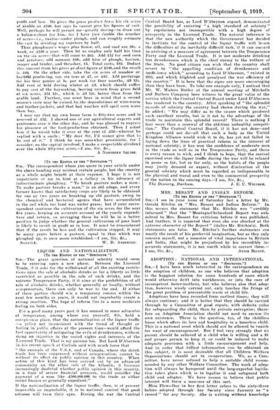ITO THE EDITOR OP THE " SPECTATOR.")
S1R,—The correspondent whom you quote in your article under the above heading may mislead certain people, but the country as a whole might benefit at their expense. I hope it is not unpatriotic of me to hint at a fallacy in his advocacy of indiscriminate ploughing. "To break pasture makes a man: To make pasture breaks a man," is an old adage, and every farmer knows that satisfactory crops are likely to be obtained for- one or two years on breaking up 'old pasture, owing to the chemical and bacterial agents that have accumulated in the soil while tne land was under grass; but if your corre- spondent continue the cultivation of the six acres for the next five years, keeping an accurate account of the yearly expendi- ture and return, on averaging these he will be in a better position to judge whether the general cultivation of poor land is likely to result in profit or in loss. It must be remembered that if the result be loss and the cultivation stopped, it may be many years before a pasture, equal to that which was ploughed up, is once more established.—I am, Sir, &c.,


































 Previous page
Previous page